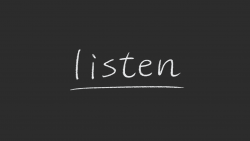
Be Prepared and Proactive
The leadership of early years has become a difficult entity in the past few years. Many early years leaders find themselves in the job overnight, as there is no-one else to do it. Some strive for the position, only to find they are working with unsympathetic school leadership, who have not fully embraced the teaching versus play concept. Some have difficulties turning around an existing staff who are locked into the ‘we have always done it this way’ mindset. Some leaders are part of the teaching staff in a unit, so have to be the consistent and strong model of excellence. Some are in closed classrooms and must make a conscious effort to monitor what is happening in other classrooms. Whatever your situation, being prepared and being proactive (rather than reactive) is the key to your success.
Staff Development
One of the things that leaders tell me they find difficult is the development of some staff members – not their knowledge and experience, but their attitude. Quite often, the minority of staff will cause the majority of the problems in a setting. For example, the mood hoovers who just do not want to be there, the happy sappers who don’t see the joy in working with children. I admit it can be hard to change the mindset of some staff, but they have to come to understand that the emotional environment is as important as the physical environment, especially for the youngest children in school. My mantra has always been ‘Happy Children Learn,’ but to enable happiness for some children is difficult. Many have chaotic starts to their days, some feel anxious and sad, some do not have their basic needs met and it is the job of the early years staff to provide a safe and supportive, happy oasis, for all children to thrive. I used to say, ‘leave your baggage at the door,’ to staff so they didn’t come to school moaning and groaning. During a course I delivered recently, we discussed just this. One delegate had the brilliant idea of a ‘ten minute baggage drop’ where for ten minutes in the morning staff are allowed to have a good old moan. When ten minutes are up, they are happy! I also try to get staff to ‘be present’ and to practice mindfulness with children. By doing this, you invariably make them feel special, as you give them full attention and live in the moment with them.
The Toolkit
As a leader, you will start to build yourself a toolkit of important documents and information to enable you to tackle your own situation; from statutory audits to quality evaluations, to the development of training and research material. When material and research is done as a team, it has a significant impact on the idea of getting the team on board with your vision.
In my journey to becoming an educational consultant, I did just this. I built a toolkit of materials and methods to be used in a variety of situations, which I now share with other leaders as the ‘Early Years Leadership Toolkit.’ Within my toolkit I ensure statutory elements are covered and also ensure I have consistent methods of evaluating the quality of all aspects of provision. I have information gathered from research about leadership and early years practice and methods of assessing and tracking children’s progress. One of the main things I started to develop was in class research. When I ask leaders how much research they do in class, they invariably say ‘none’, but when we really start to look at the solutions they have developed to solve problems, explore curiosities and to close gaps, they realise research happens as a normal part of everyday practice. When leaders start to record this research they, by default, build a pack of training materials for existing and new staff members. Some settings have even started to record their research and the outcomes of their phase meetings using a very creative ‘floor book’ method. They recognise that floor books are great for supporting children’s learning and as a tool for reflection and now use the same method with the staff in school.
Leadership in the early years is a gift. You have the ability to influence the attitudes and practice of a team of staff, who have the ability to influence the lives and experiences of the youngest children. Get it right and we hook them in to education for life. Get it wrong and…
Continue the Conversation
For more information on early years leadership, keep an eye on the Focus Education blog, find us on Twitter @FocusEducation1 or get in touch with the Focus Education office on 01457 821 818.






